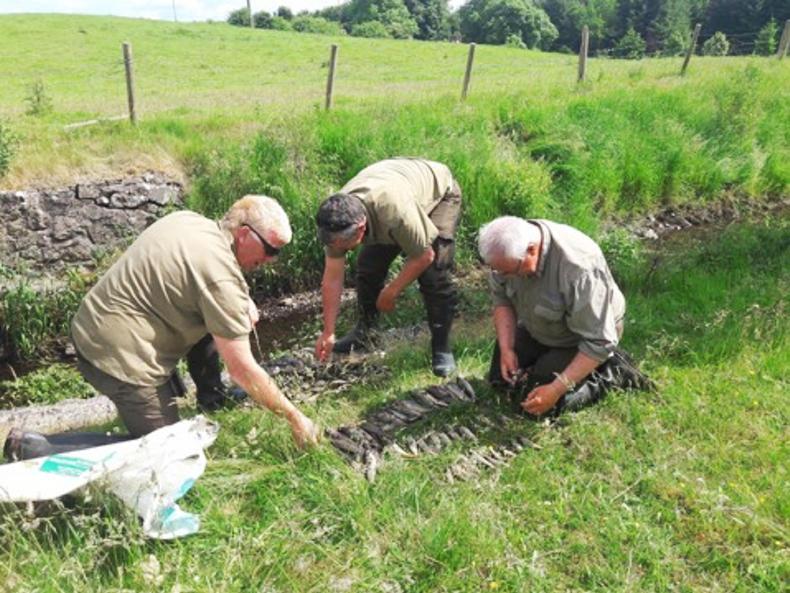Inland Fisheries Ireland is currently investigating an incident where effluent of agricultural origin is believed to have resulted in a significant fish kill in the Ballygowan River.
The river is one of the prime spawning tributaries of the Robe River, which flows into Lough Mask. As of yet, the precise source of the pollutant has not yet been identified.
Locals reported fish, primarily wild brown trout, in an agitated state in the river on Tuesday evening 5 June.
Since then, over 1,000 wild brown trout ranging in age from zero to four years old have been removed dead from the river.
Inland Fisheries Ireland head of operations Greg Forde said: “Currently, water levels are at an all-time low and water temperatures are getting very high for trout and salmon. These factors combined can mean that a small amount of polluting matter can have devastating results.”
He called on all farmers and silage contractors to be extremely careful in the current conditions to ensure that no effluent is released near drains, streams and rivers. He emphasised that extreme care should be taken when spreading slurry near any water course.
Inland Fisheries believes that given the extent of the damage it will take some years for the affected stretch to make a full recovery.
Read more
Farmers asked to avoid water pollution when making silage and spreading slurry
'Major' slurry pollution incident in Co Tyrone
Inland Fisheries Ireland is currently investigating an incident where effluent of agricultural origin is believed to have resulted in a significant fish kill in the Ballygowan River.
The river is one of the prime spawning tributaries of the Robe River, which flows into Lough Mask. As of yet, the precise source of the pollutant has not yet been identified.
Locals reported fish, primarily wild brown trout, in an agitated state in the river on Tuesday evening 5 June.
Since then, over 1,000 wild brown trout ranging in age from zero to four years old have been removed dead from the river.
Inland Fisheries Ireland head of operations Greg Forde said: “Currently, water levels are at an all-time low and water temperatures are getting very high for trout and salmon. These factors combined can mean that a small amount of polluting matter can have devastating results.”
He called on all farmers and silage contractors to be extremely careful in the current conditions to ensure that no effluent is released near drains, streams and rivers. He emphasised that extreme care should be taken when spreading slurry near any water course.
Inland Fisheries believes that given the extent of the damage it will take some years for the affected stretch to make a full recovery.
Read more
Farmers asked to avoid water pollution when making silage and spreading slurry
'Major' slurry pollution incident in Co Tyrone






 This is a subscriber-only article
This is a subscriber-only article











SHARING OPTIONS: